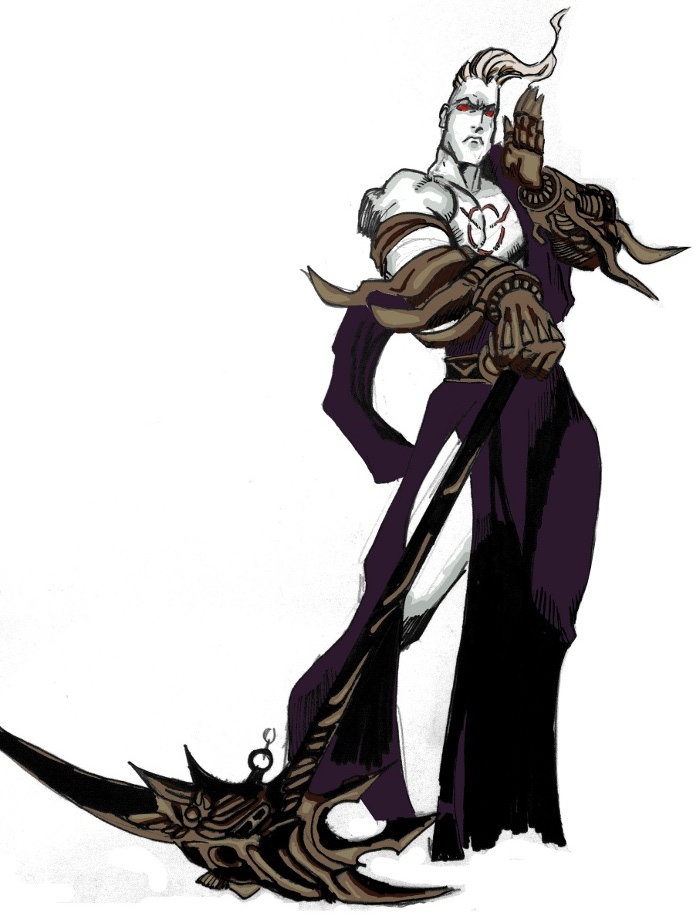I have been thinking about the best or most appropriate way to tackle the relationship between Christ and the gods of Pantheon, and recently I came across a potential approach in Sloterdijk’s “Cabinet of Cynics” chapter from Critique of Cynical Reason where he goes through the five embodiment of cynicism through history. The first suspect is none other than Diogenes, who embodied the low theory version in his decided opposition to the all-too serious discourse of Socrates & Plato. Kynicism was based on the animal nature of man, where the gestures of the body were framed as arguments (farting or shitting or whacking off in public). In other words Diogenes poked fun at his grave opponents, but instead of talking against such idealism, he lived in opposition in an anti-theoretical, anti-dogmatic and anti-scholastic way.
However, this critique morphs with Lucian of Samosata, because Lucian became respected in his co-opting of the original kynicism. Now opportunistic, criticism is launched against the crude philistine.
Finally, the cynic finds its ultimate form in Goethe’s Mephistopheles: an anti-metaphysical, empirical positivist. The Grand Inquisitor from Brothers Karamazov turns out to be the same devil masquerading as a high priest; a prototype of the cynical political conservative we know better as Hitler or Goebbels or Stalin. His realism replaces good and evil with knowledge and power. This is where I see the gods of pantheon: as cynical dreamers, they k now that in order to rule over worlds, they need the truth in order to lie. The gods are not interested in people as ends, but only as means to justify their place in the cosmos.
The gods withhold the truth from their worshipers because they believe people cannot handle it. They are essentially the conservative politician post-French Revolution, prone to declarations like:
“They will tear down the temples & drench the earth with blood. But they will realize, the foolish children, that although they are rebels, they are impotent rebels who cannot bear their own rebellion.” (Sloterdijk, p. 185)
Pantheon Gods & Christ as allegory of Grand Inquisitor
The gods of pantheon are representative of modernity, the new cynical political conservative. Such representation is in effect a retrospective projection of a contemporary ideological tension from the 20th-21st century into antiquity. Intellectually, the gods are closer to Hitler, Stalin than they are to the original pagan gods of history.

Dis Pater, a typical Roman god of the Mediterranean, an ancient chthonian god, and utterly corrupt, one day witnessed the appearance of Christ. In his lands, Jesus performed miracles after miracles. The god thoroughly understood the significance of these acts, but instead of welcoming the presence of divinity, Dis Pater orders Christ to be tossed in the bowels of the underworld.
Later, Dis Pater accuses Christ of attempting sabotage, and promises to destroy him with his own people.
Dis Pater is neither dim, nor blind, or mistaken in his thought and action. What Christ excused his crucifiers, Dis Pater knows exactly what he is doing, and with utter clarity. Whether that is tragic or cynical is an open question. If Dis Pater knows what he is doing in locking up Christ, then he acts according to grave reasons that are potent enough to motivate him into shocking actions. Dis Pater explains himself to Christ, but as a politician to the architect of a religion. He replaces theology with anthropology, emancipation with administration, the individual with the institution.
Dis Pater accuses Christ of subversion because he blames Christ for appearing at the moment of the Roman Empire was effective in assimilating the wide variety of religions of its subjects and provinces, and on the verge of deluding itself into believing that it could last forever by establishing domination through assimilation.
If the subjects of the Roman empire lost their freedom in the political sense, did they become more convinced that they are free? Did they possess the truth, given that Christ announced to them that the truth shall set them free?
Roman gods like Dis Pater sees through this deception and, proud of his realism and representing his pantheon of conquerors, he claims to not just have the truth, but improve on it. Therefore, Christ failed to think politically and failed to understand what human nature in the political context required: domination.
The Grand Inquisitor’s speech to Christ contains kernels of modern institutionalism, which is astounding for it openly and freely admits a cynical bases in intentional deception that waves the flag of necessity.
The pagan gods, similarly, make the following claim: only the unique individual has the courage to be free.
Only someone like Christ who rejected the tempter in the desert. Most others will trade in freedom for bread, for they seek relief from pain.
The gods can safely assert that virtually all of mankind are afraid of freedom and do not know anything more important than sacrificing their freedom, establish walls to protect themselves and bow to the altar of tradition or the future. A religion of freedom must resort to the fundamental truths of human nature, and the gods are more than willing to rule in Christ’s name and continue his legacy under false pretenses deceive the people, and be forced to lie to them.